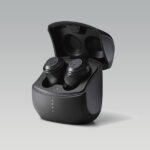For $5.4 billion, Intel has agreed to buy Tower Semiconductor, an Israeli chipmaker that specializes in specialty products such as radio frequency (RF) chips, CMOS image sensors, and power management components.
The transaction is aimed at bolstering Intel’s new Intel Foundry Service subsidiary, which was established last year to help third-party companies produce semiconductors using Intel’s chipmaking methodologies and manufacturing facilities. The goal is for Tower and IFS to become a “fully integrated foundry business” after the purchase is completed.
With the recent news of a $20 billion investment to expand its existing Arizona manufacturing facilities, as well as a second $20 billion bet to build an entirely new complex in Ohio that it claims will be the “largest silicon manufacturing location on the planet,” Intel has made no apologies for its plans to rapidly ramp up production capabilities.
“We are building Intel Foundry Services to be a customer-first technology innovator with the broadest range of IP, services and capacity. Tower and IFS together will provide a broad portfolio of foundry solutions at global scale to enable our customers’ ambitions.”
commented Dr. Randhir Thakur, president of Intel Foundry Services
Intel Foundry Services was first announced in March 2021 as part of Intel’s IDM 2.0 plan, which was unveiled by CEO Pat Gelsinger as a way for the corporation to reclaim its position as a key player in the chip industry. IFS has already announced a number of key collaborations, including the use of Intel’s packaging technology by Amazon Web Services and the start of chip manufacturing for Qualcomm utilizing Intel’s forthcoming 20A process.
The Tower Semiconductor acquisition will allow Intel to extend IFS’s product portfolio to include new and more specialized products, allowing the combined company to provide a more comprehensive chip-making solution to firms in the future. Tower Semiconductor’s entry into Intel’s production network will also help to grow the company’s manufacturing network, as Tower’s fabs (placed in Israel, California, Texas, and Japan) and more specialized products will complement Intel’s current facilities.








